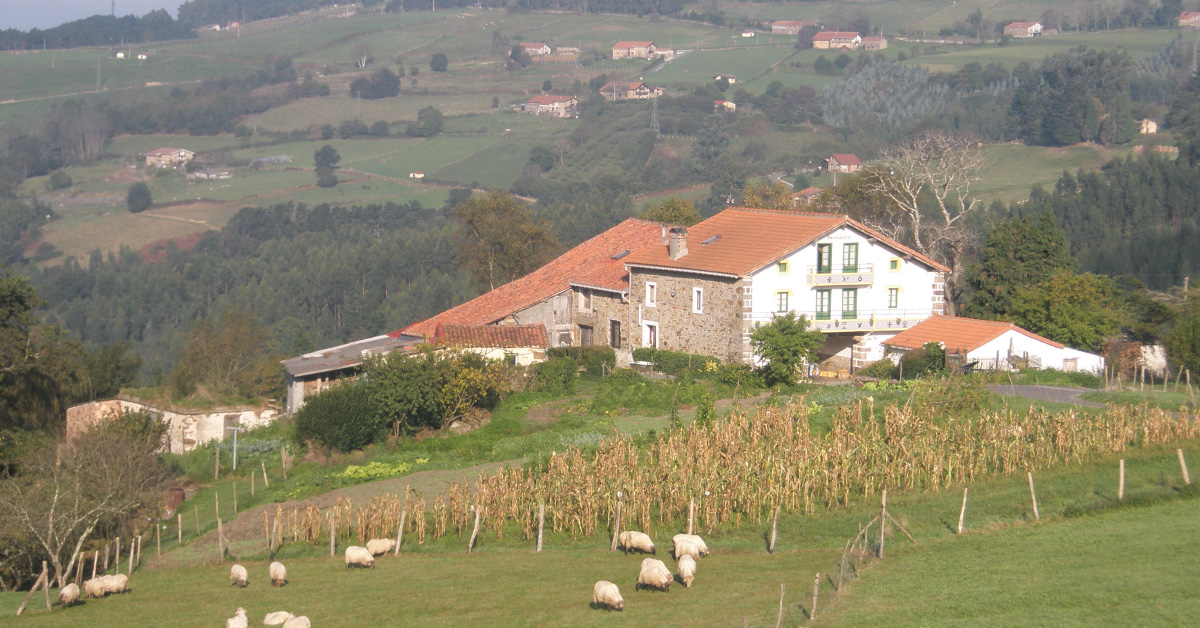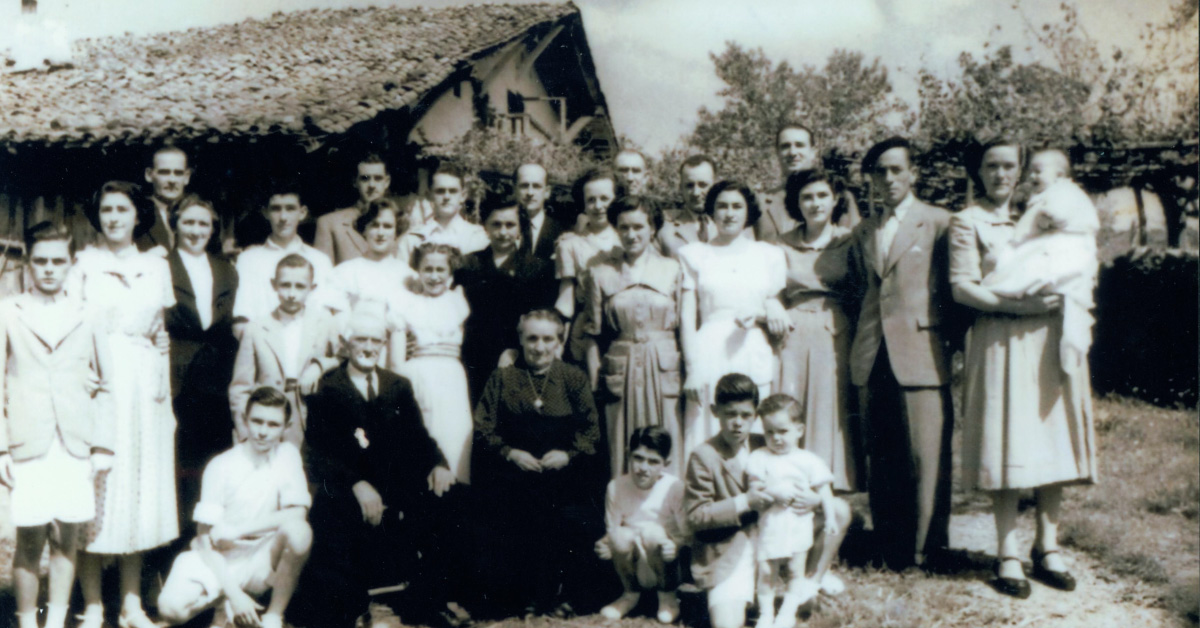Basque ethnography at a glance
The farmhouse (baserria) is the Basque house that is characteristic of the dispersed settlement system prevailing in much of Bizkaia.Yet the term baserri includes, apart from the house, the lands belonging to it. In that regard, the approach to the farmstead as a production and family unit was aimed at acquiring the maximum degree of social autonomy and economic self-sufficiency.That was in keeping with the principle of indivisibility of the family wealth.Furthermore, the customary law affecting property and the family would aim to ensure the preservation and development of the wealth, of the family and of the farmstead, by ensuring that the latter remained within the family unit. The basic institutions of the customary law in Bizkaia, such as lineage rights (troncalidad), freedom of testation and transfer of jointly-owned property rights (comunicación de bienes), make sense in this context.
Lineage rights
Lineage rights mean that the property is connected to the family and cannot beleft to someone outside it without the agreement of the “lineage” relatives, which must always follow an order of precedence:relatives in the descending, ascending and, finally, the collateral line, in the latter case up to the degree.Charter Law establishes that the estate must be left to the lineage relatives and should another person be named as the heir, they could challenge it.Should somebody wish to sell or transfer a property, it must first be offered to those lineage relatives with the option of purchasing it at the appraisal value; this right is known as “saca foral”. If that is not the case, the sale can be challenged and the right to purchase the sold property can be claimed by the lineage relatives. Another of the characteristics of lineage rights in Bizkaia is that the assets that a person obtains from a third party outside the family then also come under the lineage system. However, that lineage status regarding those assets is only recognised to their offspring and their descendants.
Freedom of testation
Testators have significant freedom under the charter law of Bizkaia. They have the right to appoint a fiduciary, usually the spouse, so that the latter can grant a testament with the same powers as the testator after his or her death. Most commonly that power is granted between husband and wife, when it is known as “alkar-poderoso”, which can be translated as “fully reciprocal empowerment”.We should also note that the freedom of testation in Bizkaia allows the estate to be left to a single heir, with the only limitation being known as “legítima”. That is established in the 1526 New Charter (as lineage rights had previously been the only constraint on the freedom of testation) which requires an heir to be appointed from among the offspring, and leaving the others aside. This meant that the farmsteads could be passed on as a whole. The other offspring were looked after with a dowry, a sum of money to learn a profession or the right to reside in the house until they married.
Transfer of jointly-owned property rights
The marriage settlement system is known as “comunicación foral” or transfer of jointly-owned property in Bizkaia, which is defined in the 1452 Old Charter. Consequently, all the assets of the couple must be divided in half in the case of the death of one of the spouses, even though the 1526 New Charter limited the impact in the case of marriages with offspring. A very widespread use in Bizkaia was to award the surviving widow or widower use of the whole of the estate, which greatly strengthened their position over the alleged heirs.
Abel Ariznabarreta
Historian



